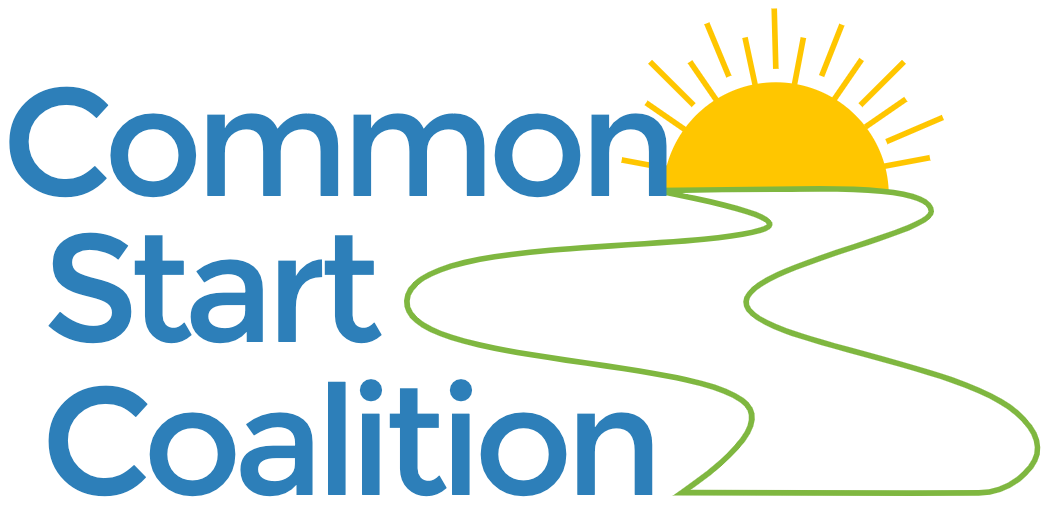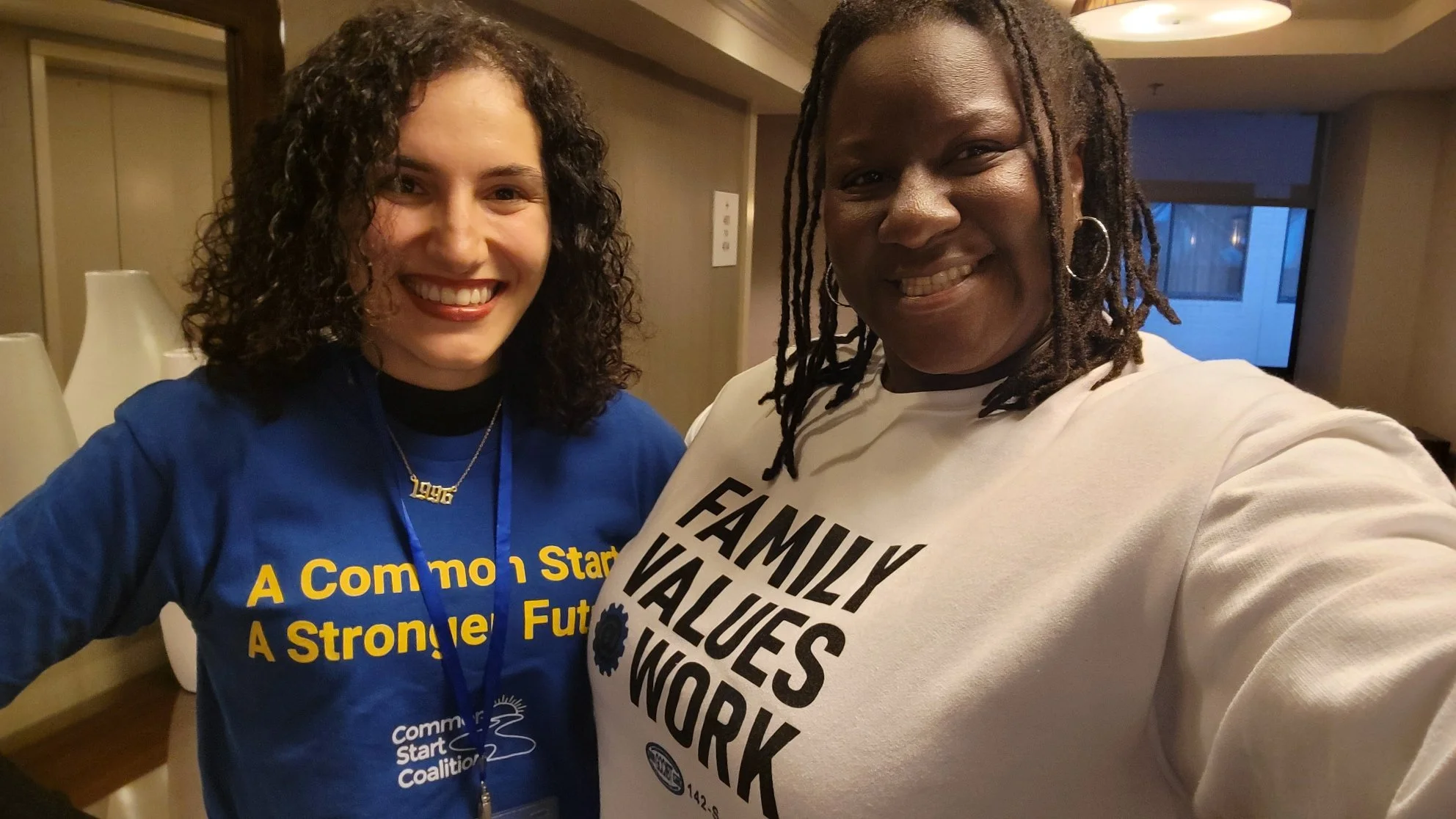Building Momentum for a Common Start
By Pegah Rouhani, Grassroots Campaign Coordinator, Common Start
In the heart of the nation's capital, Washington D.C., I had the privilege of attending the Grassroots Assembly for Child Care, an event that resonates with those passionate about creating a more equitable and just society for all. The assembly was part of a broader initiative, the Child Care for Every Family Network, bringing together parents, caregivers, early educators, providers and advocates from across the country to advance child care as a pivotal issue of racial, gender and economic justice.
It was more than just a mere gathering. It was a catalyst for change.
The event’s facilitators provided a platform for like-minded individuals committed to the cause of affordable, accessible, high-quality early education and child care to unite, share knowledge, exchange ideas and, most importantly, take a step forward in the collective journey towards ensuring every child has a strong, nurturing start in life, while also grasping the importance of providing stable funding, higher pay, and better benefits to those who make it possible.
Attendees at the Grassroots Assembly for Child Care
Key Takeaway
The objectives of the assembly were clear and ambitious: to establish connections among participants, enhance our understanding of the struggles that arise from Early Education and Care (EEC) programs and brainstorm practical solutions necessary to bridge these gaps. For me, the biggest key takeaway is laying the groundwork for collaborative action through skill-building sessions, trauma-informed storytelling and in-depth discussions to break down the vital tools and resources and leverage them in our respective states.
It's evident that to be successful in advocating for our vision at the federal level, we need to focus first on strengthening the child care movement at the state level. The grassroots aspect of this movement is what gives it true power, and we as organizers must have greater trust in the power we possess. We have the responsibility to integrate the needs and concerns of local communities into the state and national discourse, fostering a more inclusive system that removes financial barriers, is culturally and linguistically sensitive, and promotes a thriving workforce.
Shining a Spotlight on Massachusetts
I proudly represented the Coalition for Social Justice Education Fund and the Common Start Coalition, highlighting the significant progress made in Massachusetts through our own child care campaign. On October 17th, Massachusetts held a legislative hearing at the State House that mobilized the Common Start Coalition, with fourteen panels of stakeholders coming together to show solidarity in the persistent fight for better access to quality EEC programs.
Our campaign strives to deliver affordable care options for families, substantially improving compensation and benefits for early educators, establishing a stable source of funding for providers, ensuring high-quality programs and services for children and offering significant relief for businesses and the economy.
The hearing featured moving testimonies from parents, early educators, providers in the mixed-delivery system, advocates, business, and a dedicated team of researchers. Their personal stories and compelling data illuminated the complexities of the issue and the urgency in passing legislation. It is now more critical than ever to ensure that marginalized voices, namely women, low-income families, Black, Indigenous, people of color and immigrants are being amplified by legislators who have agreed to co-sponsor the Common Start bills.
Our approach to policy recognizes the intersectionality rooted in the current child care system. From the outset of our coalition, we have made it a priority to deepen the relationships between our members and achieved this through a series of virtual roundtables where each session expounded on a different element that constitutes the defective nature of the EEC system such as racial equity, gender equity, health equity and workforce development. We continue to acknowledge these challenges and address their impact thoroughly, putting those who experience the most significant consequences at the center of our movement and empowering them to help make the change they want to see happen. By recognizing the interconnectedness of these dimensions, we are shifting the narrative. Rather than adhering to a one-sided, “family issue” framework, we have reinforced the diverse array of perspectives that shape the fabric of our state.
The Relevance of Coalition Building
If there’s one thing I’ve discovered in the ongoing pursuit of universal child care, it’s that coalition building should not be overlooked.
In the realm of advocacy, numbers matter. When you have an extensive network of families, providers, early educators, a diverse set of stakeholders, and experts, the chances of policymakers taking notice and effecting change are due to increase. To put it simply, more voices equate to more influence.
If we join forces in our shared mission, we can contribute our unique insights and expertise, resulting in comprehensive policy proposals that are far more effective in reaching long-term goals. It’s also worth noting that gaining traction for policy changes entail consistency in public outreach and inclusion in the decision making process.
As the new Grassroots Campaign Coordinator for Common Start through the CSJ Ed Fund, I’m keen on re-engaging the 160 plus members of the Common Start Coalition and engaging a broader segment of the community in our efforts to invigorate statewide affairs, and that starts with identifying and recruiting more regional groups, impacted families, early educators, businesses, and mixed delivery providers from every corner of our commonwealth, raising awareness of the Common Start vision and its impact on potential partners.
Pegah with another attendee at the Grassroots Assembly for Child Care


